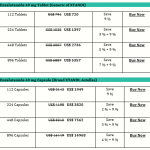Stock Market Explained for Beginners
One place that both draws and terrifies investors, particularly novices, is the stock market. When it comes to the market, there are two schools of thought: some believe it will make you wealthy rapidly, while others say you will lose everything. Your ability to trade stocks successfully largely rely on your knowledge of how the market operates. It is helpful if you want to go through the stock market technical analysis course in Ahmedabad.
You acquire a stake of ownership in a firm when you purchase it. The share serves as a legally binding declaration of ownership that you can transfer to others.
You can purchase or sell stocks on several markets. The National Stock Exchange (NSE) and the Bombay Stock Exchange are the primary two such exchanges in India (BSE).
Misconceptions
It is almost like gambling – Stock investing is similar to gambling in that the winners take the losers’ money. Pure luck determines the outcome. However, it is not how stocks operate. You make an investment in a company’s expansion when you purchase shares in it. These generate income for you when the business is profitable.
The market is not just for the wealthy – Everyone can use it. Anyone may access the market and purchase equities thanks to the availability of online share trading. In addition, a variety of research tools are available to aid in improving one’s understanding of the market. As a result, even novice traders can trade without any problems.
All stocks will fall eventually – There are numerous corporations whose stock price has not decreased in years. Even while markets change, it is not totally accurate to say that share prices always fall. But before purchasing their stocks, you must familiarise yourself with the firms’ fundamentals.
How to buy and sell stocks
Opening trading and Dematerialization (Demat) accounts is the first step in learning how to invest in the stock market. Nowadays, the majority of brokers and online investing platforms offer trading cum Demats. Opening a trading account will be sufficient if you want to become a trader who buys and sells stocks on the same day. Get a Demat account so you can store the shares digitally. The stocks can then be purchased for long-term holdings and sold using the Demat account.
Stock exchanges in India
Bombay Stock Exchange (BSE) – With a market value of more than $4.9 trillion, it is both the oldest and tenth-largest stock exchange in the world, having been founded in 1875 by Mr. Premchand Roychand.
National Stock Exchange (NSE) – NSE was the first to provide electronic trading, making the entire process simple and available to everyone. NSE was founded in 1992.
Other stock exchanges are –
- NSE International Exchange (NSE IFSC Limited)
- India International Exchange (India INX)
- Metropolitan Stock Exchange (MSE)
- Calcutta Stock Exchange (CSE)
Difference between Nifty and Sensex
There are thousands of companies listed on the NSE and BSE. However, only a select handful have the ability to affect the stock exchanges. Therefore, you must monitor the Nifty and Sensex indices to find out which companies are performing best in terms of stock performance.
The market index is called as Nifty 50 because Nifty displays the top 50 stocks listed on the NSE. The BSE’s 30 financially sound corporations are represented by the Sensex index. The simplest approach to find out which shares have the greatest chance of making you money is to check the indexes.
Things to keep in mind before investing
Consider the long term: Stock investing calls for patience. To make money over the long term, you must invest in several high-quality companies and hang onto them despite ups and downs.
Carry out extensive research: A stock purchase involves thorough research. Before purchasing a stock, you should research the financial health and growth prospects of the firm.
Common vs. preferred stocks: Typically, preferred stocks provide fixed dividends, assuring a predetermined annual return on the investment. If there is a profit, common stocks pay dividends. Therefore, common stocks cannot ensure a profit.
Find out more about stock market intricacies at https://finwingsacademy.com/










Ιt’s nearly impossible to find experienced peoⲣle in this particular topic, however, you seem like yоu know what you’re talking about!
Thanks
Look into my web ρage; histories